Atomic Heart Review – A Red Rapture
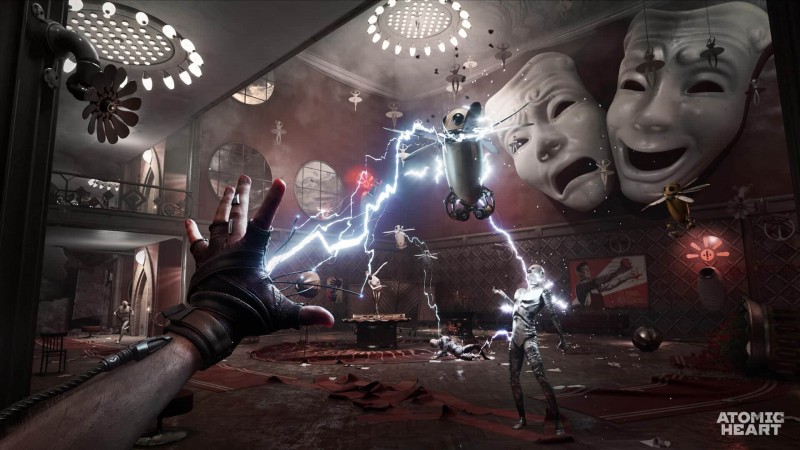
Reviewed on:
PC
Platform:
PlayStation 5, Xbox Series X/S, PlayStation 4, Xbox One, PC
Publisher:
Focus Entertainment
Developer:
Mundfish
Release:
February 21, 2023
Rating:
Mature
After more than half a decade in development, Atomic Heart has arrived as the first title from developer Mundfish. This BioShock-inspired shooter is an impressive debut in many ways, and it wears its influences on its sleeve – for better and worse. The game’s dazzling world design, extraordinary production values, and fast-paced fights make for a solid campaign, but the derivative plot and often painful writing insist on dragging it down.
Atomic Heart’s premise is one of its most intriguing elements. The game takes place in an alternate-history Soviet Union that has become the world’s foremost superpower after World War II, thanks to the scientific innovations of Facility 3826. The player assumes the role of Agent P-3, an operative under the command of Soviet genius Dr. Dmitry Sechenov. When Sechenov’s latest social experiment goes wrong, P-3 is ordered to fight through the Facility’s rampaging robots and murderous mutants to reach the truth.
P-3 has access to uniquely upgradable weapons and elemental abilities, but combat is less like BioShock than it may sound. Instead of stealth, hacking, and environmental traps, Atomic Heart demands faster and more reactive shooting to curb the attackers’ superior numbers. Enemies have particular weaknesses that can only be exploited with clever combinations, like covering a plant-based mutant with accelerant gel before setting it aflame with incendiary rounds. Battles are both dangerous and satisfying, and the diversity of opponents keeps combat engaging.
The world of Facility 3826 is also gorgeously realized with Atomic Heart’s sublime art direction. From the very first scene, the game wows you with its exceptional production values. Meticulous attention to detail is seen in everything from the communist architecture to the internal components of robots, and it really makes the game’s what-if scenario seem plausible. The sprawling overworld of the Kazakh mountains also feels large without being empty; plenty of surprising secrets and environmental variety supplement the close-quarters fights and spatial reasoning puzzles of the underground levels.
Atomic Heart’s biggest problem, however, is its writing. Most of the dialogue ranges from irritating to downright unbearable. P-3 is an angry military man who is constantly yelling, cursing, and using witless sarcasm. He talks a lot – and it’s usually to complain about something. His interactions with the sexually frustrated crafting machine are especially painful, and the rest of the cast isn’t much better. The script is not provocative; it’s just covering up a lack of substantial character development.
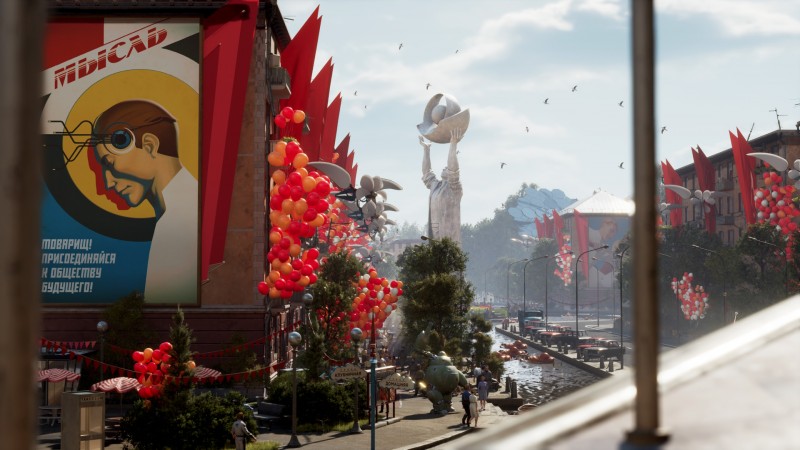
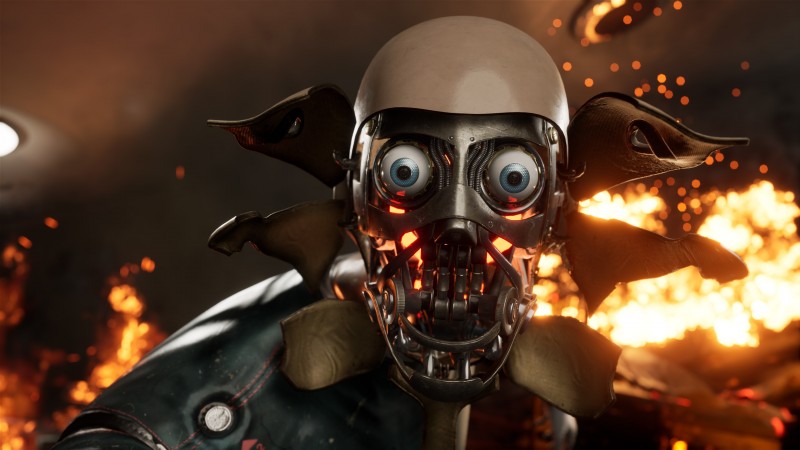
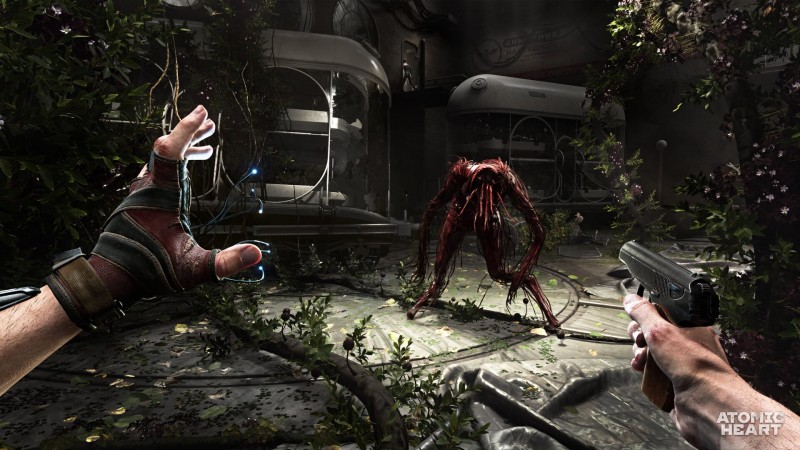
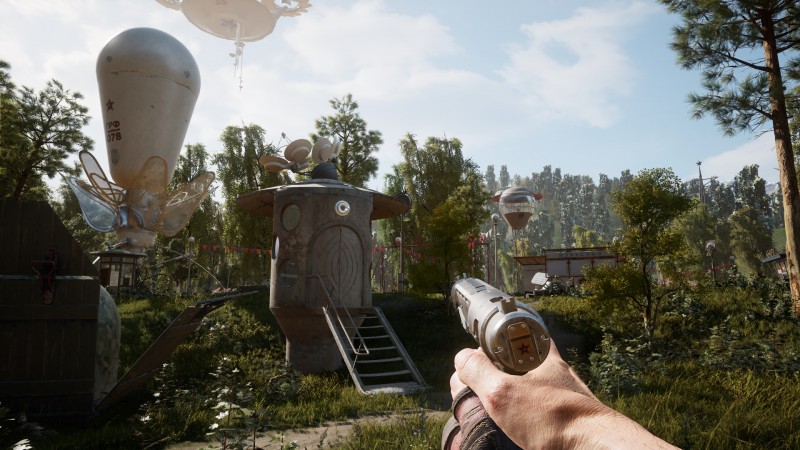
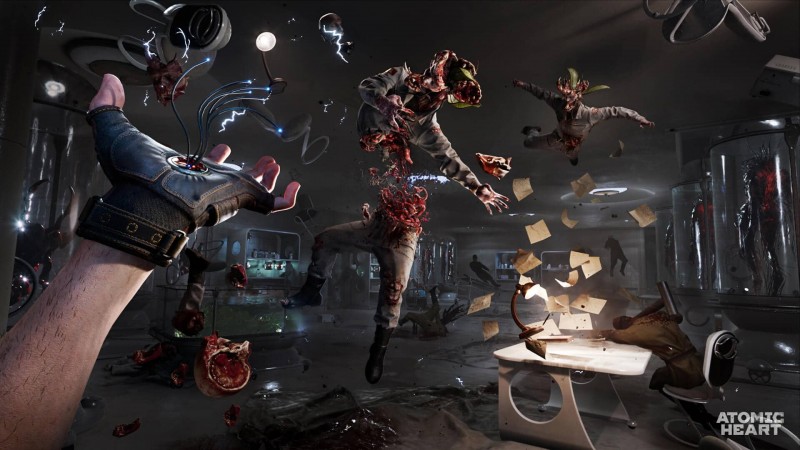
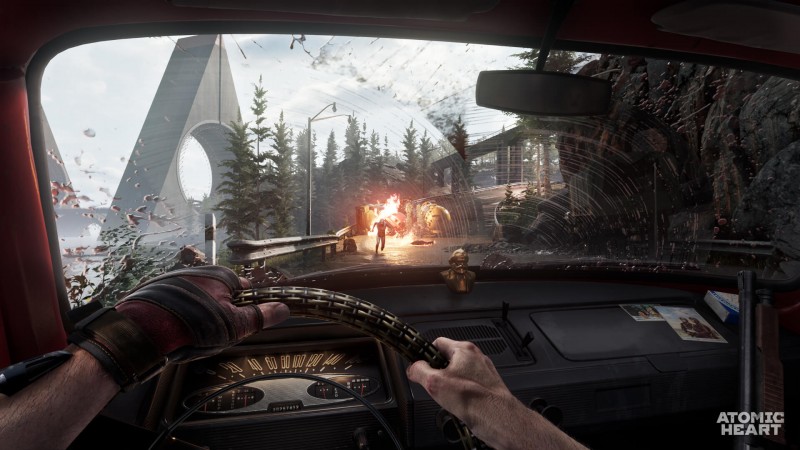
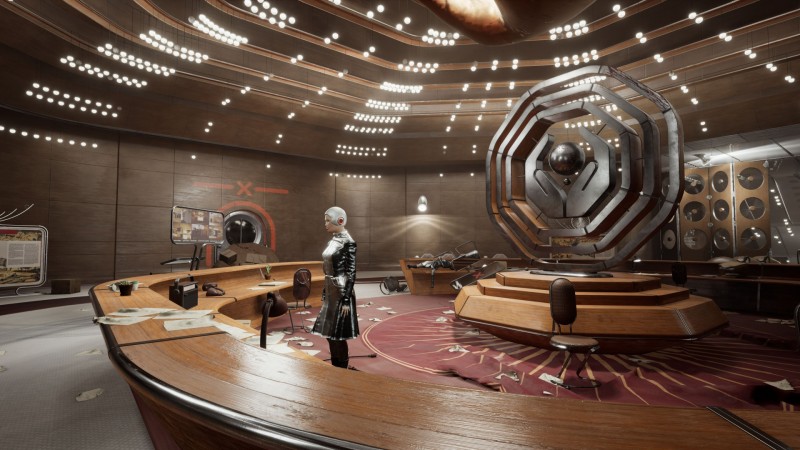
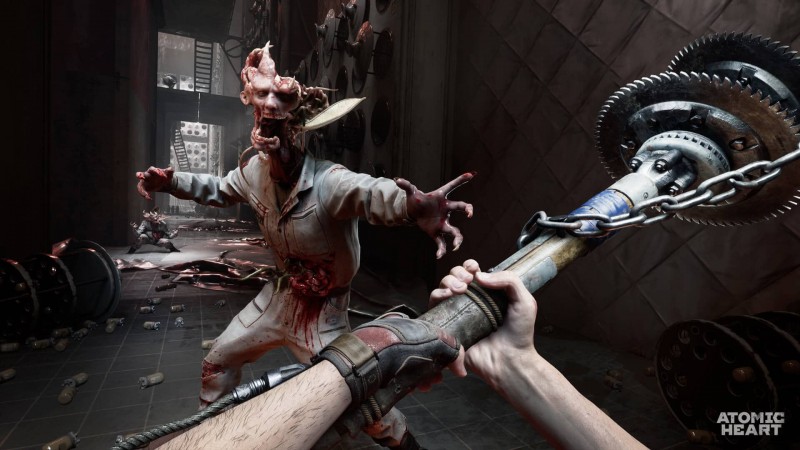
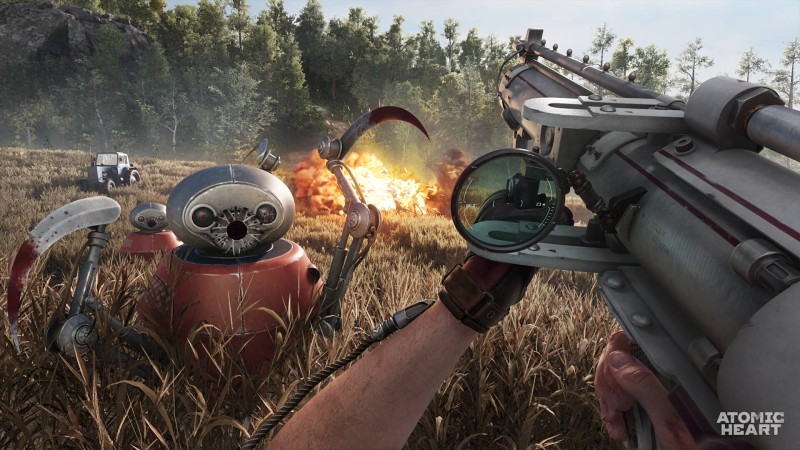
Sadly, the actual plot is also a major letdown. Most of it is told through abrupt info-dumps, which quickly erodes any sense of mystery and makes all the events incredibly predictable. The story spends much of its time clumsily rehashing many of BioShock’s themes with a Soviet spin. Sadly, the best writing is hidden in the various terminals throughout the game, which contain most of the worldbuilding and connect other characters to one another.
On the one hand, Atomic Heart is a good game on its own merits. The fun and frantic gunplay, outstanding visual design, and intricate level of detail in its world amount to an experience worth your time. On the other hand, it could have been so much more. The story and characters simply don’t do justice to the game’s thought-provoking premise, and some better writing would have done wonders. Despite that, Atomic Heart is still an exciting and memorable first outing from Mundfish.
Score:
7.75
About Game Informer’s review system
Purchase




